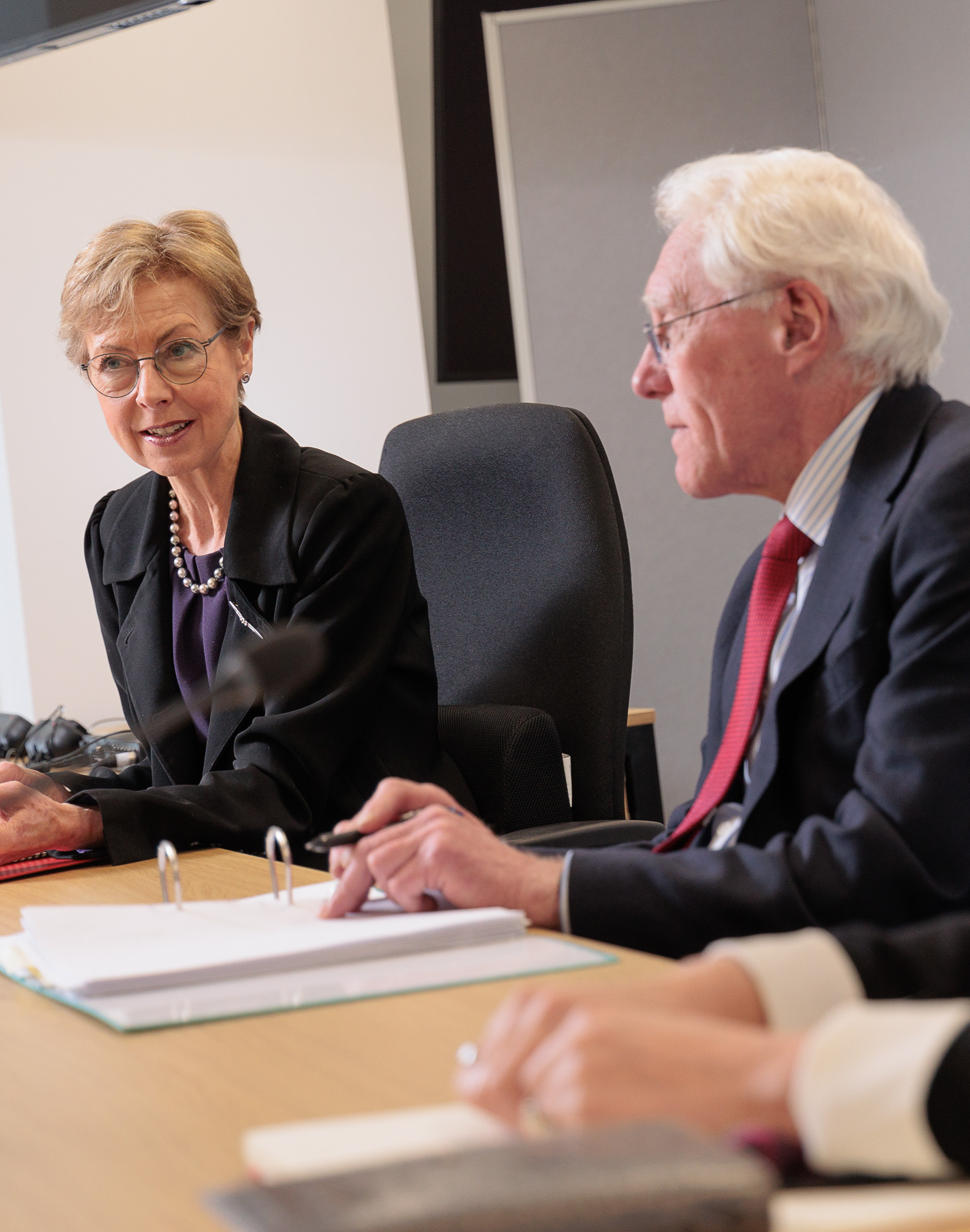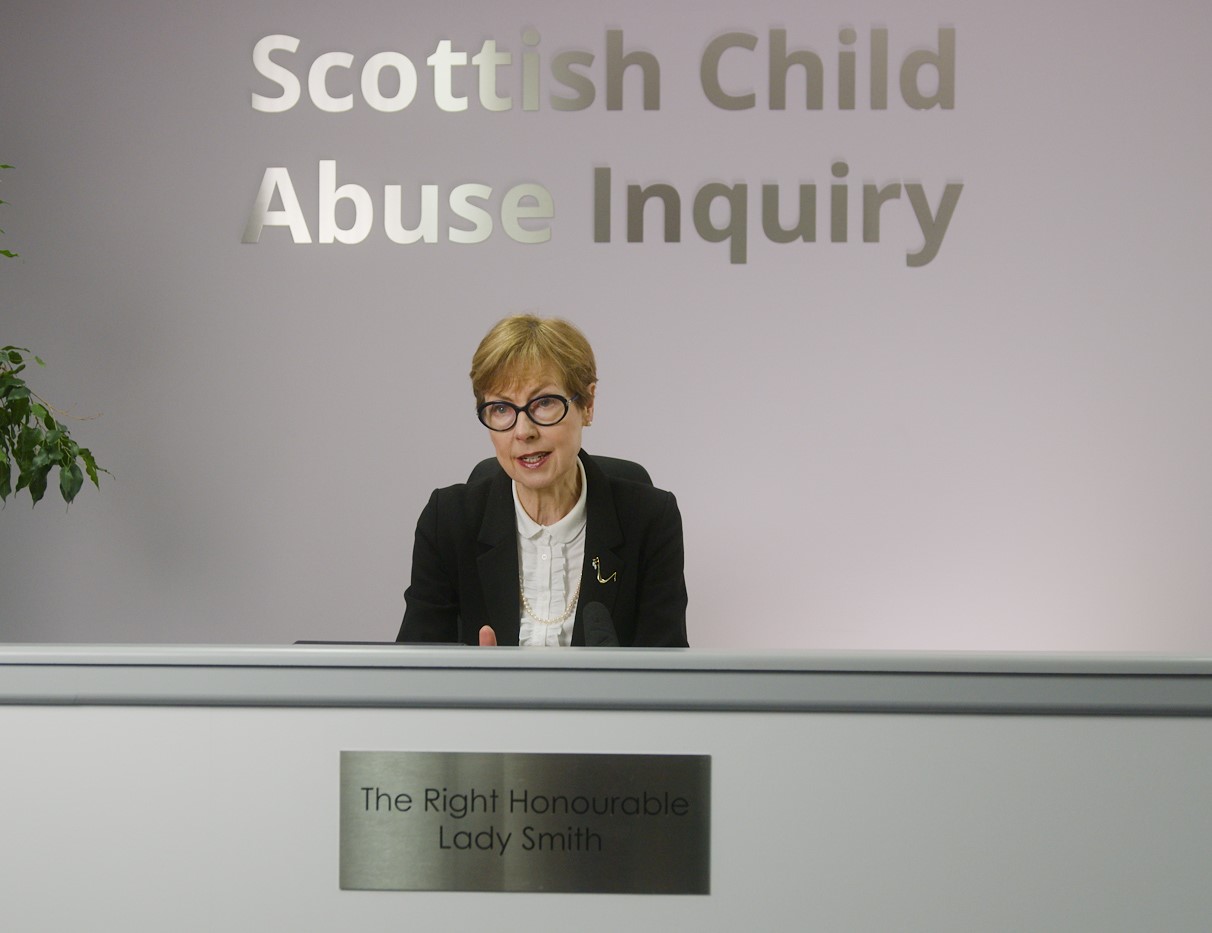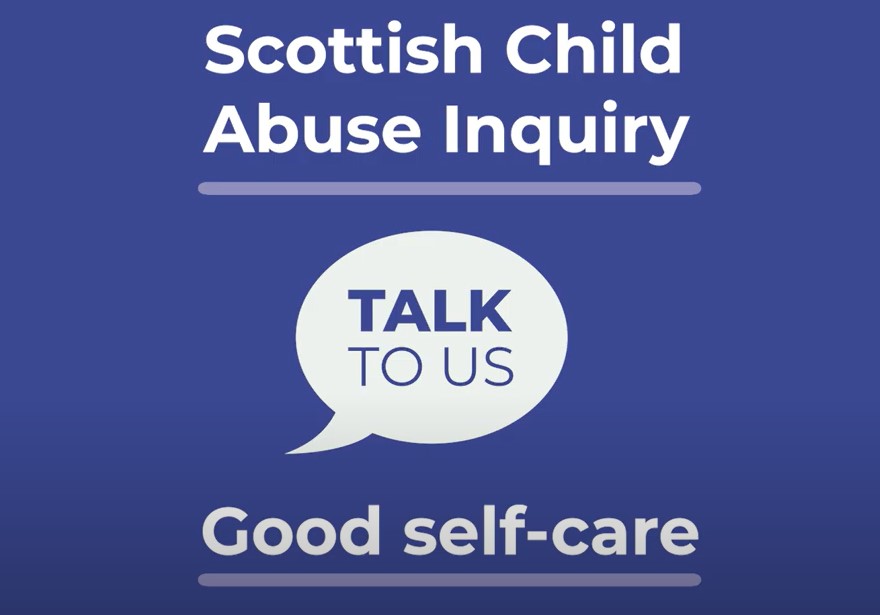Current Investigation
Phase 10 investigations: 'The provision of residential care for children and young people in establishments run by Local Authorities and establishments run by voluntary providers used by Local Authorities to place children in care'.

Evidence Hub
Search the Evidence Hub for documents including Witness Statements, Transcripts of Hearings, Case Study Findings, and Reports by Care Providers.

Our recently published news items
The most recent case studies, videos, and articles relating to the ongoing work of the Inquiry.
You can search for older news items on our News page.

Scottish Child Abuse Inquiry begins Phase 10 hearings
MORE...
Inquiry to commence Phase 10 of investigations
On 10 December 2025, the Scottish Child Abuse Inquiry (SCAI) will begin its public hearings in relation to Phase 10 of its investigations: the provision of residential care for children and young people in establishments run by Local Authorities and establishments run by voluntary providers used by Local Authorities to place children in care.
SCAI’s investigations into this area of residential care have been ongoing throughout the life of the Inquiry.
The period examined by SCAI’s investigations into abuse at these establishments extends from within living memory until the end of 2014.
This case study will explore the nature and extent of all forms of physical, sexual, and emotional abuse, including the abusive use of corporal punishment and restraint.
Reporting systems and the wide-ranging impact of abuse have been and continue to be aspects of SCAI’s investigations, as do staff recruitment, training, and organisational culture.
The case study will include the presentation of evidence from individuals who experienced abuse when in residential care in one of these settings and from providers.
Hearings will be held at the Inquiry’s venue at Mint House, 20 West Register Street, Edinburgh, EH2 2AA.
At this stage, applications may be made for leave to appear for this case study. Anyone wishing to apply should do so as soon as possible and, in any event, no later than Friday, 3 October 2025.
What is involved in having leave to appear is explained on the Inquiry’s website: www.childabuseinquiry.scot/procedure/pre-hearing-procedures. Application forms are also available on the website: www.childabuseinquiry.scot/procedure/application-leave-appear.
Members of the public do not need leave to appear to watch hearings from the public areas in the Inquiry’s venue. They are welcome to do so at any time.
SCAI has also created an Easy Read information guide with simple language and pictures to help people understand more about the Inquiry. This is available on the website: www.childabuseinquiry.scot/accessibility-support
Twenty establishments have now been confirmed as being included in the case study:
| Establishment | Provider | Location |
| Merkland Children’s Home | Dumfries and Galloway Council | Moffat |
| Dunclutha Children’s Home | Glasgow City Council | Dunoon |
| Lagarie House Children’s Home | Sailors’ Society | Rhu |
| Lord and Lady Polwarth Home | CrossReach | Edinburgh |
| St Margaret’s Children’s Home | Fife Council | Elie |
| Redheugh Adolescent Unit | Salvation Army | Kilbirnie, Ayrshire |
| Gryffe Children’s home | Renfrewshire Council | Bridge of Weir |
| Bellshill Children’s Home | North Lanarkshire Council | Bellshill |
| Coblehaugh Children’s Home | Aberdeenshire Council | Inverurie |
| Nimmo Place Children’s Home | Perth and Kinross Council | Perth |
| Colonsay House | Perth and Kinross Council | Perth |
| Red House Home | Red House Home Trust | Musselburgh |
| Ponton House | Ponton Trust | Edinburgh |
| Widowers’ Children’s Home | WHC Trust for Children | Edinburgh |
| Glenallan Children’s Home | City of Edinburgh Council | Edinburgh |
| Clerwood Children’s Home | City of Edinburgh Council | Edinburgh |
| Park Lodge Children’s Home | Glasgow City Council | Glasgow |
| Eversley Children’s Home | Glasgow City Council | Pollokshields |
| Downcraig | Glasgow City Council | Castlemilk |
| Fornethy House Residential School | Glasgow City Council | Kilry, Angus |

Inquiry told how children were abused and afforded no dignity or humanity
On Friday, 17 October the Scottish Child Abuse Inquiry (SCAI) will hear closing submissions relating to Phase 9 of its investigations.
Beginning in April, this evidential section related to the provision of residential care in establishments for children and young people with long-term healthcare needs, additional support needs and disabilities.
This included residential schools which provided care for deaf or visually impaired children, including St Vincent’s School for the Deaf and Blind in Glasgow, Harmeny School in Midlothian, and the Royal Blind School and Donaldson’s School for the Deaf, both in Edinburgh.
Senior Counsel to SCAI, Ruth Innes KC said: “The Inquiry has heard evidence that children and young people suffered physical and sexual abuse.
“There was also serious emotional abuse and neglect, some children and young people were not afforded any dignity or humanity.
“Children and young people were placed in institutions for the purposes of containment or control of what was viewed as ‘challenging behaviour’.
“The regimes to which they were then subjected reflected that view. Abusive staff behaviour was, on occasion, mirrored by children. Corporal punishment was deployed contrary to government guidance, policy and legislation.
“In institutions targeted at the provision of education for deaf children, for part of the period, the use of sign language or gesture was physically punished.
“As a result, some children were unable to access the education which was being provided.”
Phase 9 spanned 43 days and heard evidence relating to 133 witnesses, relating to 17 institutions. This included the evidence of 63 applicants. Nearly 11,500 documents were in-gathered as relevant to the case study.
Themes which have emerged from the evidence include:
- Failures to listen to children or to allow them to communicate effectively to enable them to report abuse
- Inadequate staff training, particularly where institutions tried to adapt to survive
- Poor supervision and lack provision of appropriate sex education allowing sexually abusive behaviours to flourish
- Excessive and inappropriate use of restraint, which disproportionately affects children with additional support needs
- Excessive and inappropriate use of sedation
- A complete lack of, or ineffective, governance
- Leadership which was autocratic, dysfunctional or absent
- Gaps in inspection regimes
Phase 9 provided a unique challenge, both in terms of taking evidence from deaf or visually impaired witnesses and how that evidence could be made accessible to all members of the public during hearings.
A spokesperson for SCAI, said: “The inquiry started early engagement with support organisations across the sector to ascertain what requirements people would need and how we could best meet them. A series of meetings were held with key stakeholders in the 18 months leading up to the case study and a suite of easy read materials were produced, ensuring they were accessible to all and readily available, where appropriate.
“We spent significant time looking at best practice and ensured there were options, such as audio, Braille and British Sign Language (BSL). A lot of work was also done to ensure our website was as accessible as possible.
“It was also important evidential hearings were accessible, proceedings were interpreted in BSL for deaf witnesses and for any members of the public who are deaf.
“Our ambition was to make all necessary adjustments and support all witnesses to be able to share their experiences.”
A range of organisations have been involved in the provision of care examined in Phase 9, including the National Health Service, local authorities, voluntary providers, and private providers.
The case study explored the nature and extent of all forms of physical, sexual, and emotional abuse including the abusive use of corporal punishment and restraint.
Reporting systems and the wide-ranging impact of abuse were also, and continue to be, aspects of SCAI’s investigations, as are staff recruitment, training, and organisational culture.
Parties with leave to appear will make closing submissions in relation to the Phase 9 case study from 9:30 am tomorrow (Friday, 17 October). No evidence will be led on this date.
A BSL translation of the closing submissions notice can be found here
Hearings Calendar – Phase 10
MORE...
Share your experience
If you want to share your experience, we can explain what’s involved and support you at every step. We have made a series of videos with BSL translations that explain how the Inquiry works.
Our progress
Some statistics from the Inquiry's investigations.

Pages of evidence analysed

Witness statements published

Days of hearings to date

BSL Scottish Child Abuse Inquiry self-care
Reading or hearing evidence can be distressing. We recognise the importance, in these circumstances, of keeping us all – applicants, witnesses, members of the public, legal representatives, and our own staff – safe from harm. We have therefore prepared this leaflet to let people know about the possible effects they may experience after reading or hearing evidence. A BSL version is also available.
